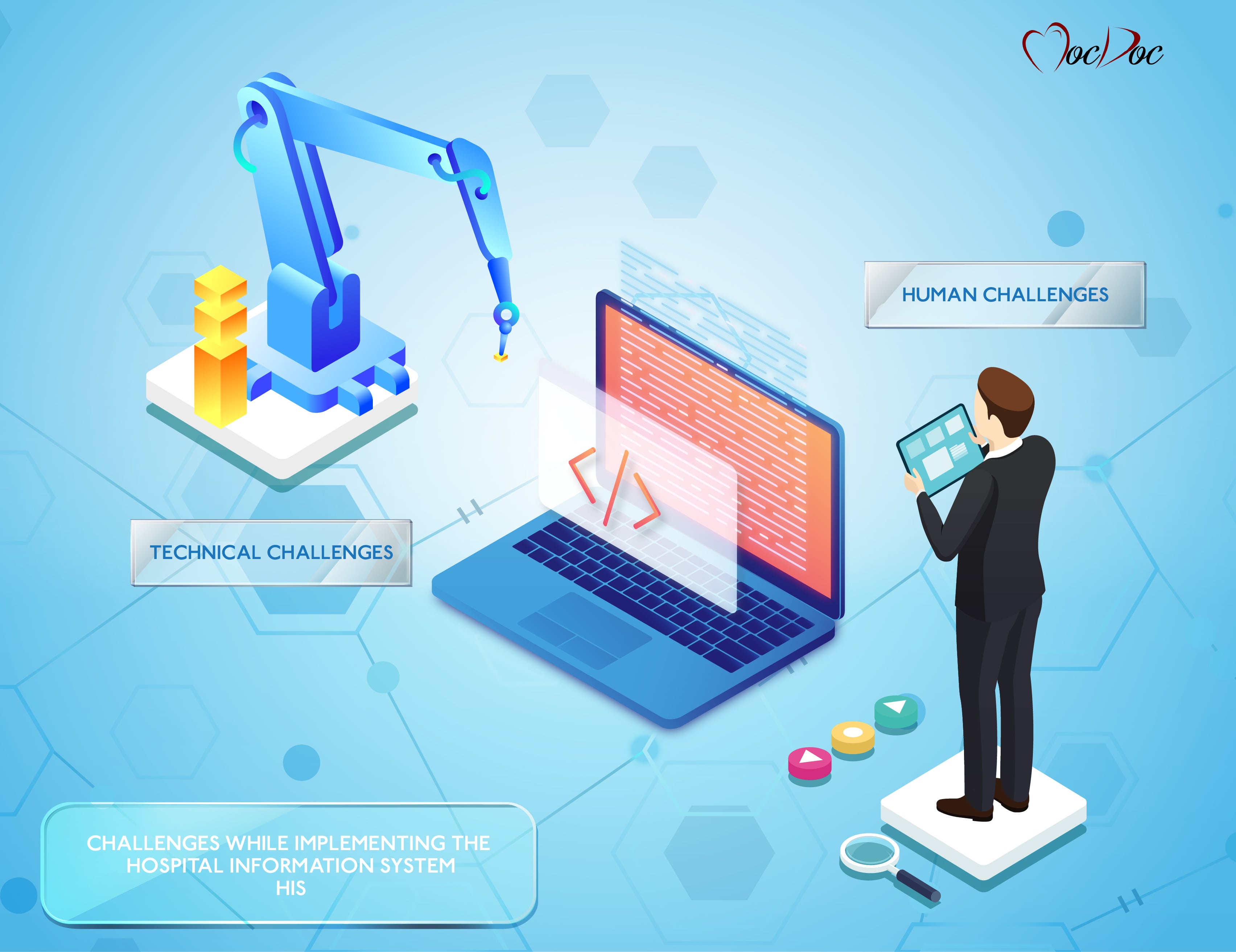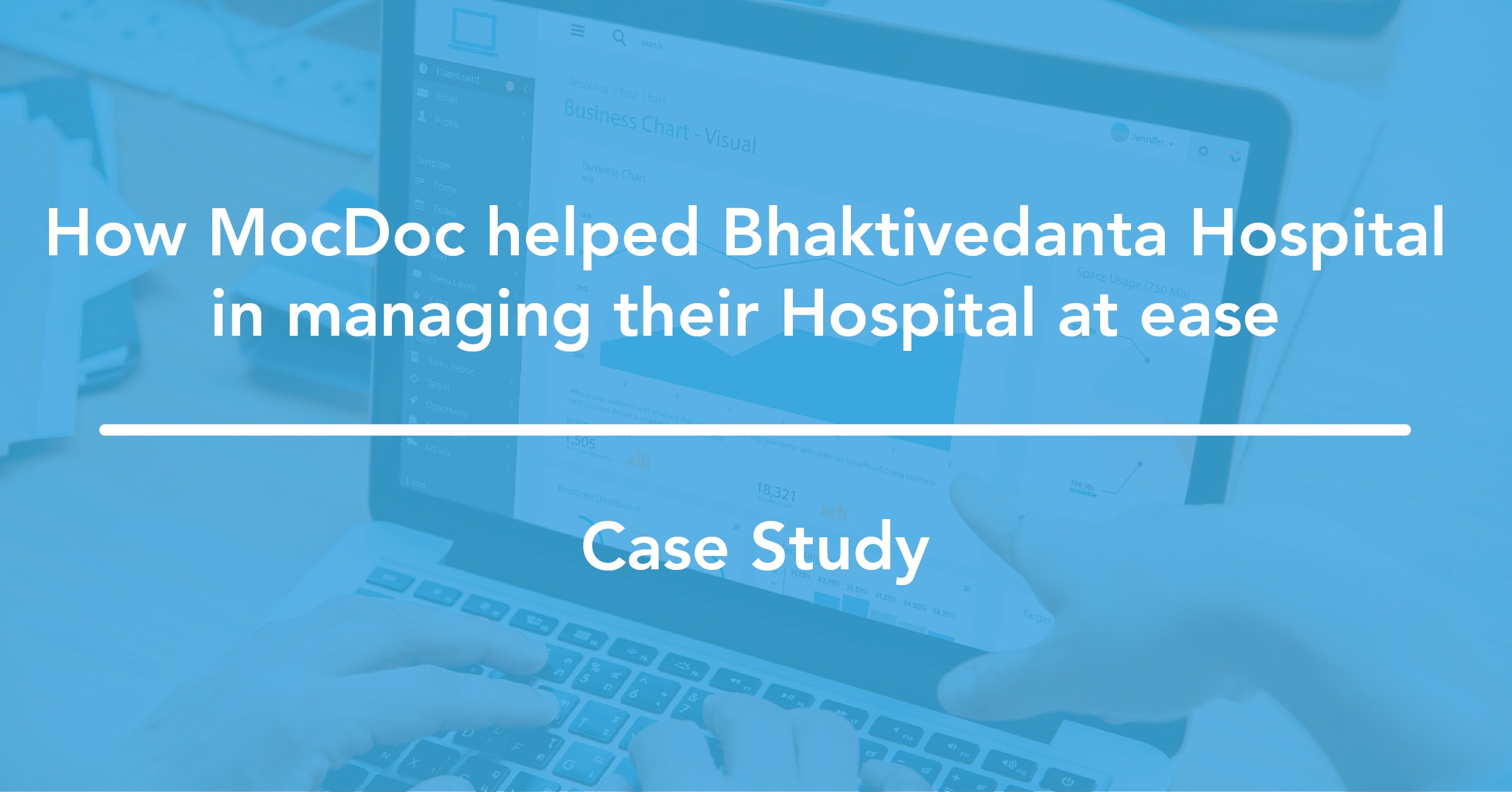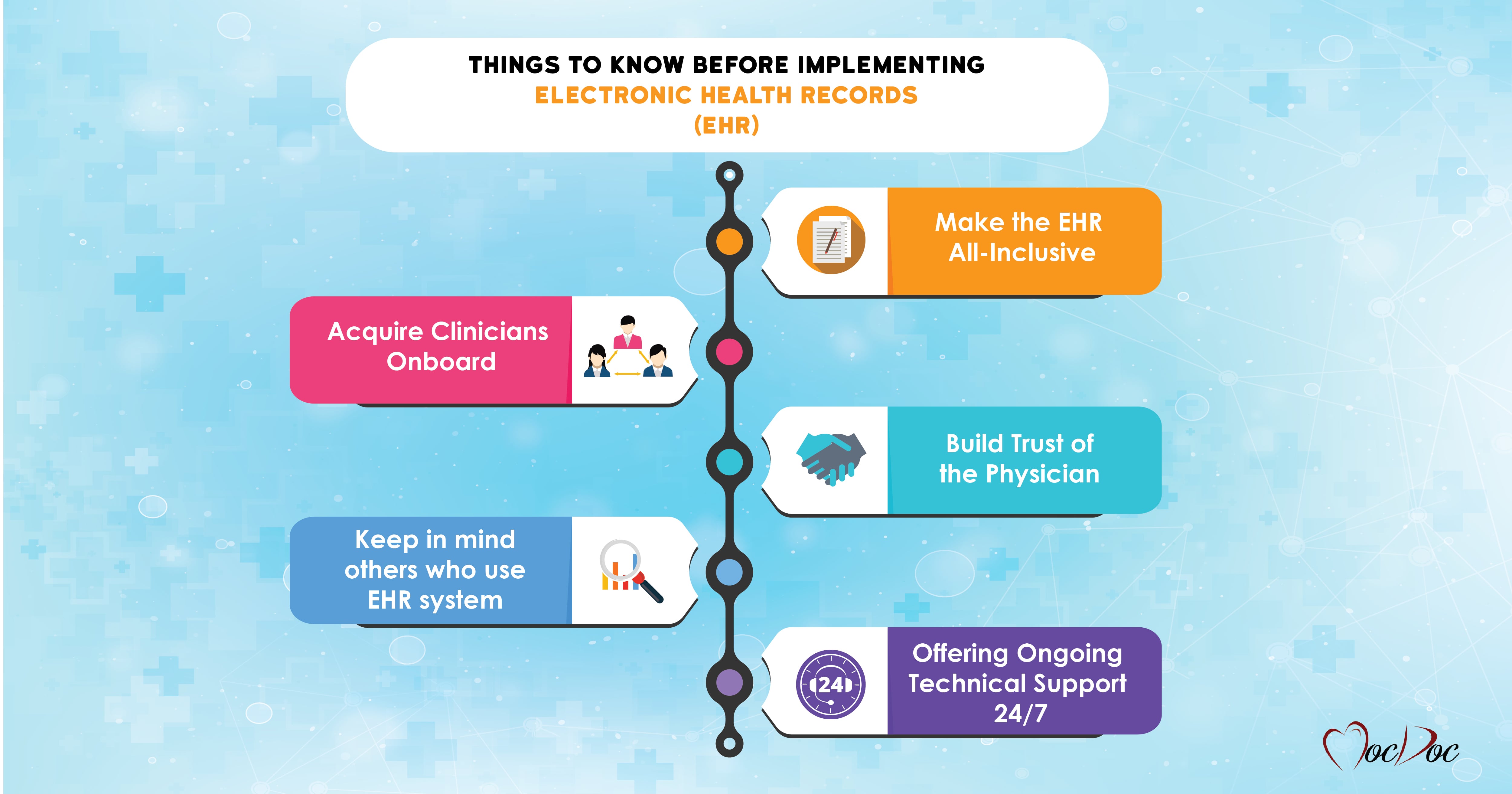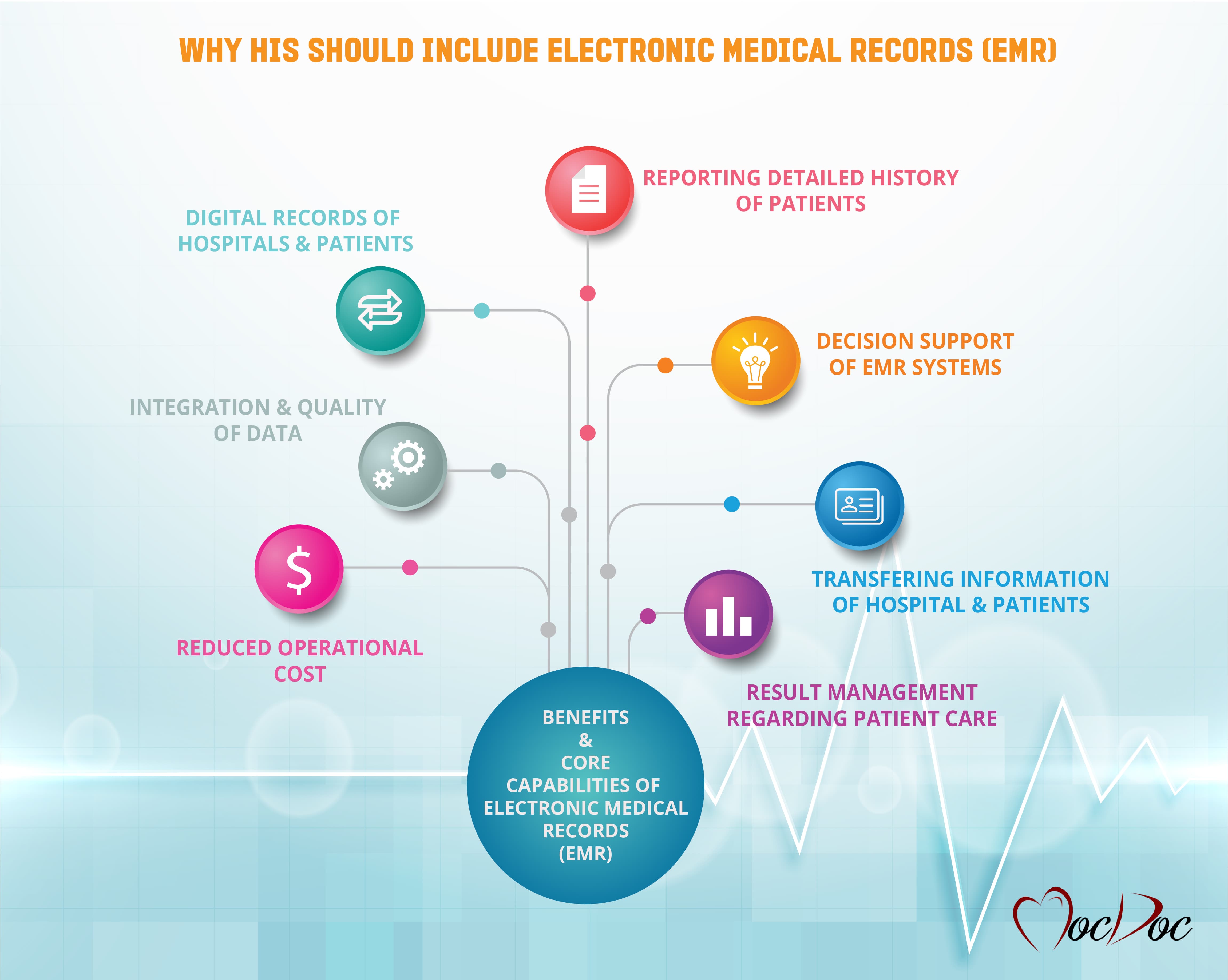MocDoc's Offerings
How HMS improves the productivity of the hospitals?
Published By
Sanjana
2019102218:17:47
Category HMS
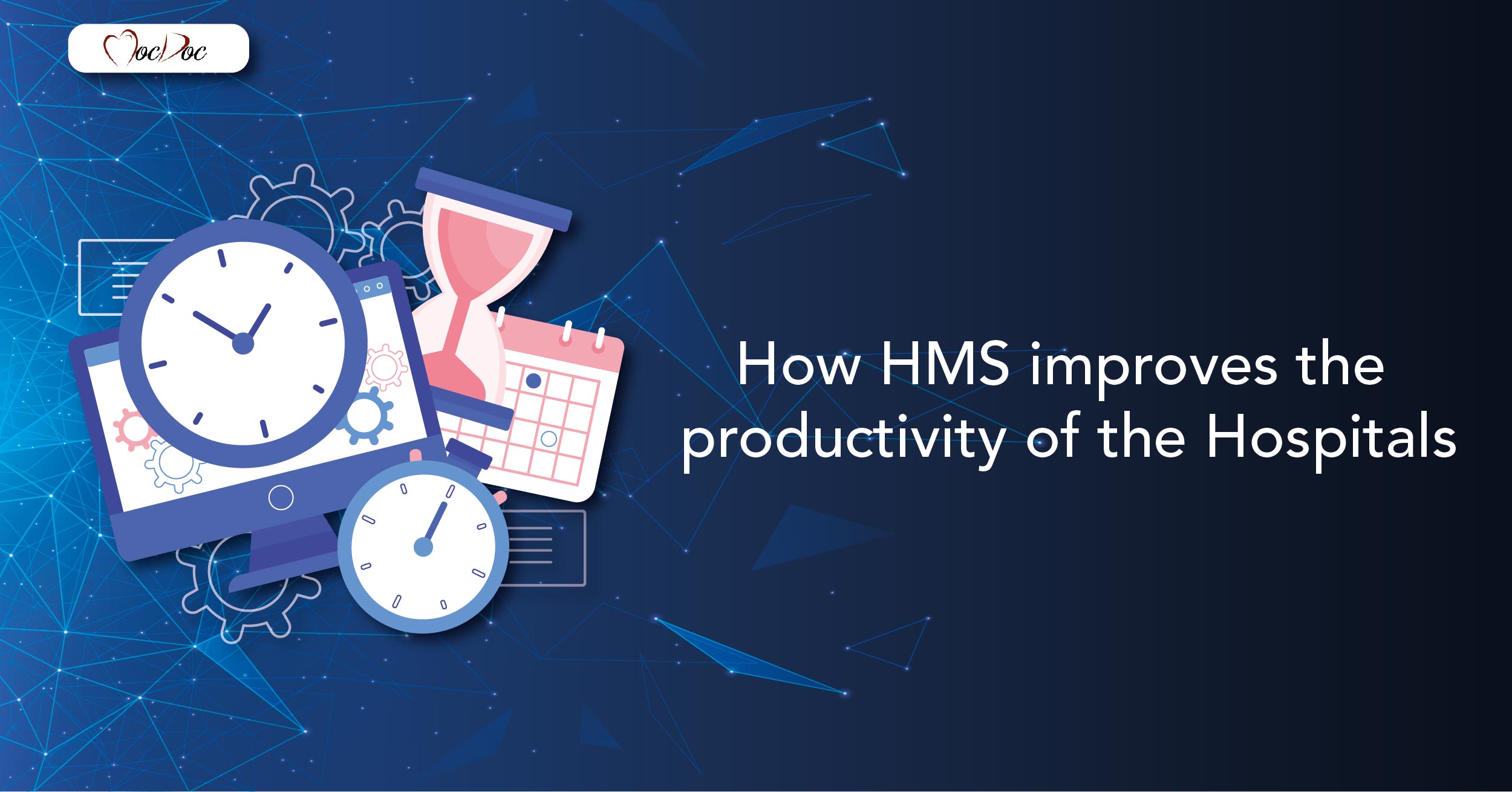
Hospital has become one crucial & mandatory part of the current digital world, and every human requires their services. In this case, the hospital must take good care of things to track the reports of their patients. Hospital Management System (HMS) is the hottest trend at present to keep track of every detail of the patients clearly and instantly.
Hospital Management System is a software system that makes back-office activities, administrative, and clinical activities paperless. It means you can save plenty of time and money as they are capable of controlling every operation in the hospital. Healthcare IT solutions play a crucial role in enhancing the services in healthcare by managing bills, reports, and other activities of their patients.
Technology act as a bridge between the healthcare system and people leading to excellent healthcare services. Many staff at healthcare centers is also gaining a good insight into the trending technologies to provide the best for their patients, like offering them needed comfort and time. There are so many modules that Hospital Management Systems offer namely
Administrator - the main module of HMS, which holds every permission and right to handle different hospital modules.
Patient Management: The module which deals with complete management and patient care related to OPD, Reception desk, Radiology, Laboratory, IPD, and more. Apart from this, they also control visitors, appointments, and other aspects of outdoor and indoor patients.
Stores and Pharmacy: The module deals with medicine stock and other relevant records.
HR and Personnel Management: The module manages the hospital payroll features like leaves, bonuses, incentives, substitute management payroll modules, daily attendance, payslips, salary, and more.
Finance Management: The module is needed to eliminate the paperwork as the financial department is the one crucial part when considering hospitals.
Clinical Services: It includes operation theatre management, housekeeping, dietary, waste management, ambulance management, mortuary management, maintenance, laundry, and more.
How does HMS enhance hospital productivity?
There are many reasons to state how the Hospital Management System helps in increasing the productivity of any hospital. Here are a few of them below.
Increases Decision Making:
Hospital Management System helps the professionals in healthcare to check out the clinical documents, diagnoses, patient records, and other relevant things in a single view and therefore results in the healthcare professionals making decisions at the right time.
Enables Patient Interaction:
The HMS software helps strengthen the relationship between patients and doctors. It also helps in making it more interactive and also enhances communication for the right type of treatment.
Appointments:
Patients and other people who need to visit the doctor can schedule or book their appointments with their doctors online. It helps to save time and money for the people.
Sharing:
The HMS helps information sharing between specialists in healthcare.
Decreases Human Errors:
Hospitals need to be clear, and a small error can lead to critical issues. The Hospital Management System, as an automated process, helps in eradicating the mistakes in the medical reports.
Enhances Data Security:
The Hospital Management System is more secure and, therefore, no chance for data thefts to occur as they happen in manual systems. Healthcare centers and other hospitals can keep their critical information safe from hackers or unauthorized persons. Everything in Hospital Management is accessed by a controlled method and, therefore, no chance for errors.
Web-based:
Hospital Management System is web-based, and therefore, it is an affordable option.
Payments:
The Hospital Management System provides access to process claims and makes online payments easily.
Technically Advanced:
The HMS is advanced and, therefore, capable of handling every operation at a hospital. The healthcare system that sends electrical information about the patients is the most preferred option for many people as there are many choices like choosing their doctors and grabbing the reports of tests taken without any hurdles.
What are your views about the Hospital Management System on Hospitals? Any other queries or information regarding HMS are welcome.
Related Articles
Challenges while implementing ...
Hospital Management System has been use..... Read more
How MocDoc helped Bhaktivedant...
IntroductionIn the city of Mumbai, Bhaktivedanta H..... Read more
Things You Need to Know Before...
The famous Kaiser Permanente installed the nation'..... Read more
Why your HMS should include El...
HMS covers three aspects of managing the hospital;..... Read more
